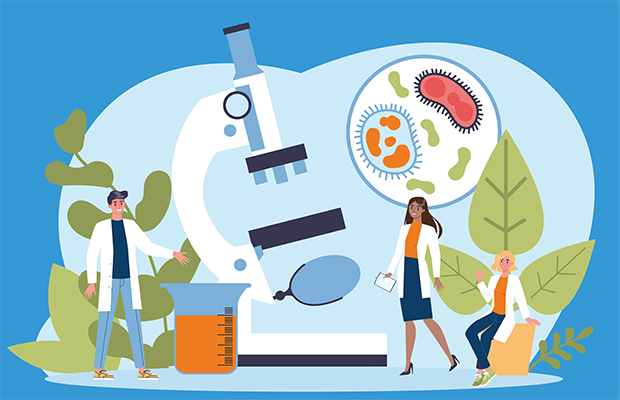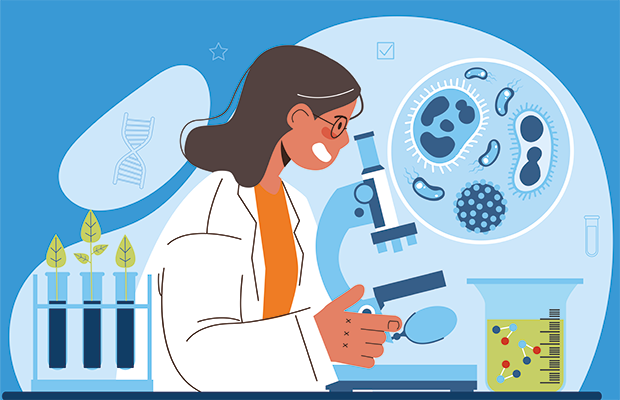Scroll to see replies
Original post by Afro Tail
I'm in the same situation, just doing Additional.
I prefer the 1's and 2's but the 3's are just added pressure. I'm hoping exams are easier this year because they are the last GCSE ones.
Posted from TSR Mobile
Original post by octoppus
I've got the same. I find B1 the easiest out of all the science exams. At the moment I've been making a powerpoint on the things I find difficult; I also have flash cards that I'm finding quite useful 

I like B1, love B2,C1 and C2 and I find physics ok. That's why I want to do really well in my chemistry and biology. I usually write notes, in short form instead of copying word-for-word from the revision guide. The blood glucose level question came up as a six marker last year so it will be unlikely to be worth similar amount of marks. However, I'm hoping that there is a six marker on the heart and how blood gets pumped around the body. Also, do you do double or triple science?
Original post by vik_k1
I like B1, love B2,C1 and C2 and I find physics ok. That's why I want to do really well in my chemistry and biology. I usually write notes, in short form instead of copying word-for-word from the revision guide. The blood glucose level question came up as a six marker last year so it will be unlikely to be worth similar amount of marks. However, I'm hoping that there is a six marker on the heart and how blood gets pumped around the body. Also, do you do double or triple science?
I do triple, which I regret taking. Although I'm on foundation for All the 3s. I'm pretty confident with B1, although there are parts of it (like neurones and blood glucose) that I can't get into my head. B2 is okay, but we had an awful teacher for it last year so there's parts I still don't get, although flash cards seem to be really helping.
For B1, I'm hoping there's a six marker on something like indicator species or eutrophication. I like those.
Original post by octoppus
I do triple, which I regret taking. Although I'm on foundation for All the 3s. I'm pretty confident with B1, although there are parts of it (like neurones and blood glucose) that I can't get into my head. B2 is okay, but we had an awful teacher for it last year so there's parts I still don't get, although flash cards seem to be really helping.
For B1, I'm hoping there's a six marker on something like indicator species or eutrophication. I like those.
For B1, I'm hoping there's a six marker on something like indicator species or eutrophication. I like those.
There's a lot of content for Biology and Physics but Chemistry is straightforward compared to the others, personally.
Posted from TSR Mobile
Is this for gcse edexcel or cambridge
Original post by TheShadoWolf
Is this for gcse edexcel or cambridge
EdExcel
Posted from TSR Mobile
Cool
What do you reckon will be in the paper
What do you reckon will be in the paper
Original post by TheShadoWolf
Cool
What do you reckon will be in the paper
What do you reckon will be in the paper
Which exam? I'm not actually sure, are they allowed to repeat 6 markers or reword them with the same topic?
Posted from TSR Mobile
B1
I don't think so
I don't think so
Ive gone through science more or less all year round because im easily confused by terms and my memory isn't amazing. But this last week ive gone over b1 loads. Ive done writing it all out into my own words, reading it aloud, creating visual ways and acronyms to make it a lot easier!
Original post by melannium
If anyone is struggling i can help - I've revised all of B1, C1, P1 since February - I think I've got a pretty good handle on it by now.
Also can someone explain cracking and polymers to me, please? It's the only thing I don't understand...
Also can someone explain cracking and polymers to me, please? It's the only thing I don't understand...
I need help with p1, physics is treacherous.
Hi. As far as I know
Cracking is when chemists break large hydrocarbon molecule chains (product from crude oil) into smaller ones.
They do this because smaller hydrocarbon chains are more useful as fuels. There are two methods to carry out cracking:
1) passing hydrocarbon vapours over a hot catalyst
2) Reacting hydrocarbon vapours with steam
Both of these methods will produce smaller hydrocarbon molecule chains.
Hope this helps
Cracking is when chemists break large hydrocarbon molecule chains (product from crude oil) into smaller ones.
They do this because smaller hydrocarbon chains are more useful as fuels. There are two methods to carry out cracking:
1) passing hydrocarbon vapours over a hot catalyst
2) Reacting hydrocarbon vapours with steam
Both of these methods will produce smaller hydrocarbon molecule chains.
Hope this helps
You could also do with knowing that an alkene is produced as well as a shorter-chained alkane when hydrocarbon molecules are cracked.
For Higher tier, I think you also need to know that cracking is also done to keep up with supply and demand. Without cracking, oil companies have excess of one fraction, but not enough to keep up with demands for other fractions. Cracking allows them to make more of one fraction to keep up with the demand by using the excess hydrocarbon molecules they have in another fraction.
For Higher tier, I think you also need to know that cracking is also done to keep up with supply and demand. Without cracking, oil companies have excess of one fraction, but not enough to keep up with demands for other fractions. Cracking allows them to make more of one fraction to keep up with the demand by using the excess hydrocarbon molecules they have in another fraction.
Original post by melannium
If anyone is struggling i can help - I've revised all of B1, C1, P1 since February - I think I've got a pretty good handle on it by now.
Also can someone explain cracking and polymers to me, please? It's the only thing I don't understand...
Also can someone explain cracking and polymers to me, please? It's the only thing I don't understand...
For polymers:
A single hyrdrocarbon molecule such as an ethene molecule is a type on monomer. Monomer just means 1 ("mono") type of molecule. In this case, an ethene mononer.
A polymer, is more than one monomer joined together. Polymers of hydrocarbons can only be made from alkene monomers. This is because to make a hydrocarbon polymer, the two (or more) monomers need to join from somewhere right?
So, what happens is, the double bond between the carbon atoms (only in alkenes not alkanes) break and this then joins to another bond that has broken from another monomer of the alkene.
This results in a chain of monomers which is a polymer.
Depending on what type of alkene you have, (e.g. ethene, propene, butene) your monomer will be called that type, e.g. a momoner of propene. When the double bond breaks between these monomers and they bond/join, they from POLY(propene) - polypropene.
Hope this helps

Quick Reply
Related discussions
- A-level Exam Discussions 2024
- GCSE Exam Discussions 2024
- Edexcel A-level Spanish Paper 2 (9SP0 02) - 17th June 2024 [Exam Chat]
- A Level Exam Discussions 2023
- Edexcel A-level Spanish Paper 1 (9SP0 01) - 7th June 2024 [Exam Chat]
- GCSE Exam Discussions 2023
- NO speaking exam date (and it's april!)
- Edexcel Past Papers
- Edexcel GCSE Geography A Paper 1 (1GA0/01) - 17th May 2024 [Exam Chat]
- Edexcel GCSE Combined Science Paper 2 Chem 1 Higher - 17th May 2024 [Exam Chat]
- Edexcel GCSE Combined Science Paper 2 Chem 1 Foundation - 17th May 2024 [Exam Chat]
- sitting a level portuguese privately
- EDEXCEL A-LEVEL PSYCHOLOGY (9PS 01) - 17th May [Exam Chat]
- I am looking at my GCSE grades from 2017
- iria's 'grow your grades' blog :)
- Edexcel GCSE Music : Listening and Appraising (1MU0 03) - 17th June 2024 [Exam Chat]
- Edexcel IAS/IAL Physics Unit 4 (WPH14/01) - 30th May 2023 [Exam Chat]
- Edexcel GCSE Physics Paper 1 Foundation Triple 1PH0 1F - 25th May 2023 [Exam Chat]
- 1000+ A2-Level Biology Exam Questions
- mock results and how can i improve
Latest
Last reply 4 minutes ago
So I made the worst decision of my life. I chose Biochemistry as my degree.Last reply 17 minutes ago
Zoom to Zoology? Uni open days, applications & more 2021-Present - a parents takePosted 25 minutes ago
What'll happen if a uni told me that my application is given to other schools?Last reply 30 minutes ago
Deloitte Graduate Scheme 2024Last reply 1 hour ago
Official London School of Economics and Political Science 2024 Applicant ThreadTrending
Last reply 11 hours ago
OCR A A-Level Biology Unified Biology [21st June 2023] Exam ChatBiology Exams
1503
Last reply 1 week ago
Unofficial Mark scheme: AQA GCSE Biology Paper 1 Triple Higher Tier 16th May 2023Last reply 2 weeks ago
OCR A A-Level Biology Biological Diversity [16th June 2023] Exam ChatBiology Exams
1821
Last reply 3 weeks ago
OCR A GCSE Biology Paper 4 Higher Tier [9th June 2023] Exam ChatLast reply 3 weeks ago
Edexcel GCSE Biology Paper 2 Higher Tier [9th June 2023] Exam ChatLast reply 1 month ago
AQA GCSE Biology Paper 1 Triple Higher Tier [16th May 2023] Exam ChatLast reply 1 month ago
OCR A A-Level Biology Biological Processes [7th June 2023] Exam ChatBiology Exams
2048
Last reply 2 months ago
AQA GCSE Biology Paper 2 (Higher Tier Combined) 8464/2H - 9th June 2023 [Exam Chat]Last reply 3 months ago
Unofficial Mark scheme: AQA GCSE Biology Higher Combined 8464/1H 16th May 2023Last reply 3 months ago
Edexcel A-level Salter's-Nuffield Advanced Biology Papers 1, 2, 3 (9BN0 01-03)Last reply 5 months ago
AQA GCSE Biology Paper 1 (Higher Combined) 8464/1H - 16th May 2023 [Exam Chat]Last reply 5 months ago
Edexcel GCSE Biology Paper 1 Higher Combined 1SC0 1BH - 16th May 2023 [Exam Chat]Last reply 9 months ago
Edexcel GCSE Biology Paper 2 Higher Combined 1SC0 2BH - 9th Jun 2023 [Exam Chat]Trending
Last reply 11 hours ago
OCR A A-Level Biology Unified Biology [21st June 2023] Exam ChatBiology Exams
1503
Last reply 1 week ago
Unofficial Mark scheme: AQA GCSE Biology Paper 1 Triple Higher Tier 16th May 2023Last reply 2 weeks ago
OCR A A-Level Biology Biological Diversity [16th June 2023] Exam ChatBiology Exams
1821
Last reply 3 weeks ago
OCR A GCSE Biology Paper 4 Higher Tier [9th June 2023] Exam ChatLast reply 3 weeks ago
Edexcel GCSE Biology Paper 2 Higher Tier [9th June 2023] Exam ChatLast reply 1 month ago
AQA GCSE Biology Paper 1 Triple Higher Tier [16th May 2023] Exam ChatLast reply 1 month ago
OCR A A-Level Biology Biological Processes [7th June 2023] Exam ChatBiology Exams
2048
Last reply 2 months ago
AQA GCSE Biology Paper 2 (Higher Tier Combined) 8464/2H - 9th June 2023 [Exam Chat]Last reply 3 months ago
Unofficial Mark scheme: AQA GCSE Biology Higher Combined 8464/1H 16th May 2023Last reply 3 months ago
Edexcel A-level Salter's-Nuffield Advanced Biology Papers 1, 2, 3 (9BN0 01-03)Last reply 5 months ago
AQA GCSE Biology Paper 1 (Higher Combined) 8464/1H - 16th May 2023 [Exam Chat]Last reply 5 months ago
Edexcel GCSE Biology Paper 1 Higher Combined 1SC0 1BH - 16th May 2023 [Exam Chat]Last reply 9 months ago
Edexcel GCSE Biology Paper 2 Higher Combined 1SC0 2BH - 9th Jun 2023 [Exam Chat]



